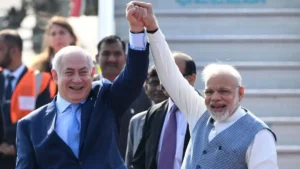Indian refiners, including Reliance Industries, have reinitiated the import of Venezuelan crude oil through intermediaries. The move comes in the wake of the temporary lifting of U.S. sanctions on Venezuela, opening avenues for direct deals between Indian companies and Venezuela’s state-owned oil firm, PDVSA.
Direct Talks Between Reliance and PDVSA
Reliance (RELI.NS), one of India’s major conglomerates, is set to engage in discussions with PDVSA executives next week regarding direct crude oil sales. The easing of U.S. sanctions in October prompted a resurgence in Venezuelan oil exports, mainly facilitated by middlemen and traders, particularly to China.
Trade Dynamics and Import Costs
- Three Indian refiners have already secured around 4 million barrels of Venezuelan crude for February delivery at a competitive price ranging between $7.50 and $8 per barrel below dated Brent.
- Notable transactions involve trading house Vitol selling 1.5 million barrels to Indian Oil Corp (IOC.NS) and 500,000 barrels to HPCL-Mittal Energy (HMEL), a joint venture between Hindustan Petroleum Corp (HPCL.NS) and Mittal Energy Investment.
Reliance’s Role and Negotiations
- Reliance, having been a significant customer of PDVSA in the past, is actively pursuing discussions for direct crude oil purchases. The company had reportedly received an offer for a prompt cargo at $16 a barrel below dated Brent on a free-on-board basis.
- Meetings between Reliance and PDVSA executives in Caracas are scheduled, and topics of discussion are expected to include both crude sales to India and fuel imports for Venezuela.
Venezuelan Oil Output Challenges
- Despite the easing of sanctions, Venezuela’s oil output remains volatile, currently producing around 850,000 barrels per day (bpd) with an ambitious target of reaching 1 million bpd.
- Reliance, as a key player in Venezuelan oil transactions, aims to navigate challenges and potentially contribute to increasing Venezuela’s crude export capacity.
Global Implications
- India’s renewed engagement with Venezuelan oil could influence its overall import costs, providing an alternative to its significant reliance on Russian oil.
- This move diversifies India’s oil sources, potentially reducing its dependency on the Middle East.
Questions Related to Exams
Q: Why has India resumed importing Venezuelan crude oil?
A: India has resumed imports following the temporary lifting of U.S. sanctions on Venezuela in October, providing an opportunity for Indian refiners to diversify their oil sources and reduce dependence on the Middle East.
Q: What is the significance of Reliance Industries engaging with PDVSA?
A: Reliance Industries is exploring direct talks with PDVSA executives for potential direct sales, signifying a potential deepening of ties between India and Venezuela in the oil sector.
Q: What challenges does Venezuela face in terms of oil output?
A: Venezuela’s oil output has been volatile, posing challenges to consistent exports. Despite a target of reaching 1 million barrels per day, the country has struggled to achieve and maintain this production level.
Q: How are the negotiations structured between Indian refiners and Venezuela?
A: Three Indian refiners have already secured approximately 4 million barrels of Venezuelan crude for February delivery at negotiated prices ranging between $7.50 and $8 per barrel below dated Brent on a delivered ex-ship basis.
Find More International News Here




 India and Israel Begin First Round of FT...
India and Israel Begin First Round of FT...
 India Holds Spot as No. 2 Buyer of Russi...
India Holds Spot as No. 2 Buyer of Russi...
 PM Modi’s Historic Israel Visit: First I...
PM Modi’s Historic Israel Visit: First I...








